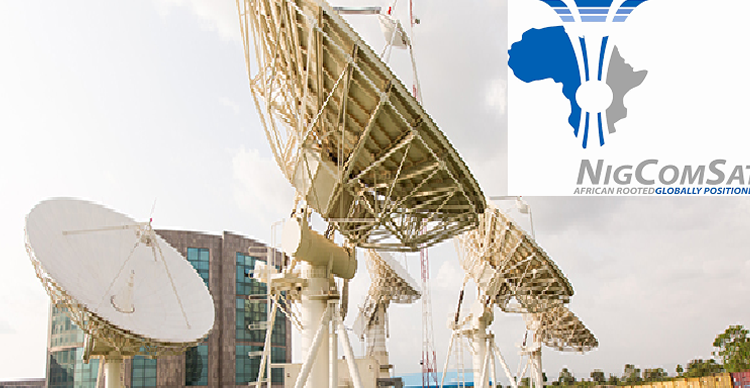In a time of deepening security crises across Nigeria, the call for more advanced, domestically produced satellites has never been more urgent.
Last week, the Nigerian Communication Satellite Limited (NIGCOMSAT) convened a forum in Abuja, bringing together leaders from the Ministry of Communications, the Ministry of Defence, and private industry.
The message was clear: Nigeria must strengthen its satellite infrastructure, not only to aid its military efforts but also to assert its technological and strategic independence.
Under the theme, “Harnessing Communication Satellites for Sustainable Development,” the Stakeholders Forum 2024 laid the groundwork for a vision of national resilience anchored in space technology – a vision that demands immediate and focused investment.
Globally, satellites are an indispensable pillar of national security. From gathering real-time intelligence to supporting surveillance operations, nations across the world depend on satellite technology to protect their citizens and respond to evolving threats.
Nigeria, a country with complex and persistent security challenges, faces an immediate need to enhance its satellite capabilities. Without a robust satellite infrastructure, security forces are at a disadvantage, unable to effectively counter the spread of insurgency, terrorism, and organised crime that have destabilised regions and left citizens vulnerable.
NIGCOMSAT’s managing director, Jane Nkechi Egerton-Idehen, has been an ardent advocate of building indigenous satellite capabilities that are locally owned, operated, and secured, reinforcing Nigeria’s sovereignty in a time when foreign reliance can bring highstakes risks.
For years, Nigeria has demonstrated the potential of satellite technology, launching its first satellite, NigeriaSat-1, in 2003, followed by a series of communication and imaging satellites.
This network has driven progress across multiple fronts – enabling internet connectivity, distance learning, GPS, and even broadcasting – but it remains insufficient to address the security needs of a modern, complex nation.
Currently, Nigeria’s military is restricted to limited geospatial imagery, hampering its ability to respond to security threats in real-time. In a world where military strategy relies increasingly on data-driven intelligence and advanced surveillance, Nigeria’s satellite infrastructure must evolve if it is to support responsive, effective defence.
In our view, the need for domestically produced satellites is not just about filling technological gaps. In an era of intensifying digital threats, foreign-built or foreign-managed satellites represent a potential vulnerability, especially for a nation facing internal and external security pressures.
Satellites designed, built, and launched within Nigeria would grant the government greater control over sensitive data, circumventing the risks that come with outsourcing vital infrastructure to external contractors or foreign entities.
Indigenous satellites would offer Nigeria a level of security, autonomy, and adaptability currently out of reach, positioning the country as a more resilient actor in a region where instability can quickly cross borders.
However, expanding Nigeria’s satellite infrastructure will require substantial financial commitment. Funding constraints have long plagued the nation’s technological ambitions, with space projects often sidelined in favour of more immediate domestic needs.
Past efforts, like the launch of NigComSat-1 at a cost of N32 billion, underscore the high stakes of such investments – yet also the high returns.
Despite its early failure, NigComSat-1 paved the way for NigComSat-1R, a replacement satellite launched in partnership with China, at no additional cost to Nigeria.
This success, however, is a double-edged sword; while international cooperation has allowed Nigeria to achieve significant milestones, it has also highlighted the limitations of relying on external partners for core infrastructure.
As Nigeria considers the next phase of its satellite programme, a broader vision must come into focus -one that sees investment in satellite technology not merely as an expenditure but as a strategic necessity.
Nigeria’s ability to launch and manage its own satellites would not only serve domestic interests but also establish the country as a leader in space technology across West Africa. An indigenous satellite programme would offer Nigeria leverage in a region that increasingly recognises the critical role of technology in maintaining peace and stability.
By investing in this vision, Nigeria would join the ranks of nations that contribute actively to the global satellite ecosystem, gaining a seat at the table in shaping the region’s security landscape.
But the path forward is not without challenges. As NIGCOMSAT and the Ministry of Defence work to chart a course for more satellites, they must contend with an economy stretched thin by inflation, declining oil revenues, and widespread poverty.
Funding for large-scale space projects is difficult to justify when basic infrastructure, healthcare, and education remain under-resourced. However, in today’s world, where technology and security are inextricably linked, an investment in satellite infrastructure is an investment in the country’s future stability.
National security is not a line item; it is a foundation for sustainable development. The stakes are too high for Nigeria to leave this potential unfulfilled.
It is from this perspective that we insist Nigeria’s troops cannot afford to be limited by the absence of such technology – satellites are no longer a luxury but an operational necessity.











